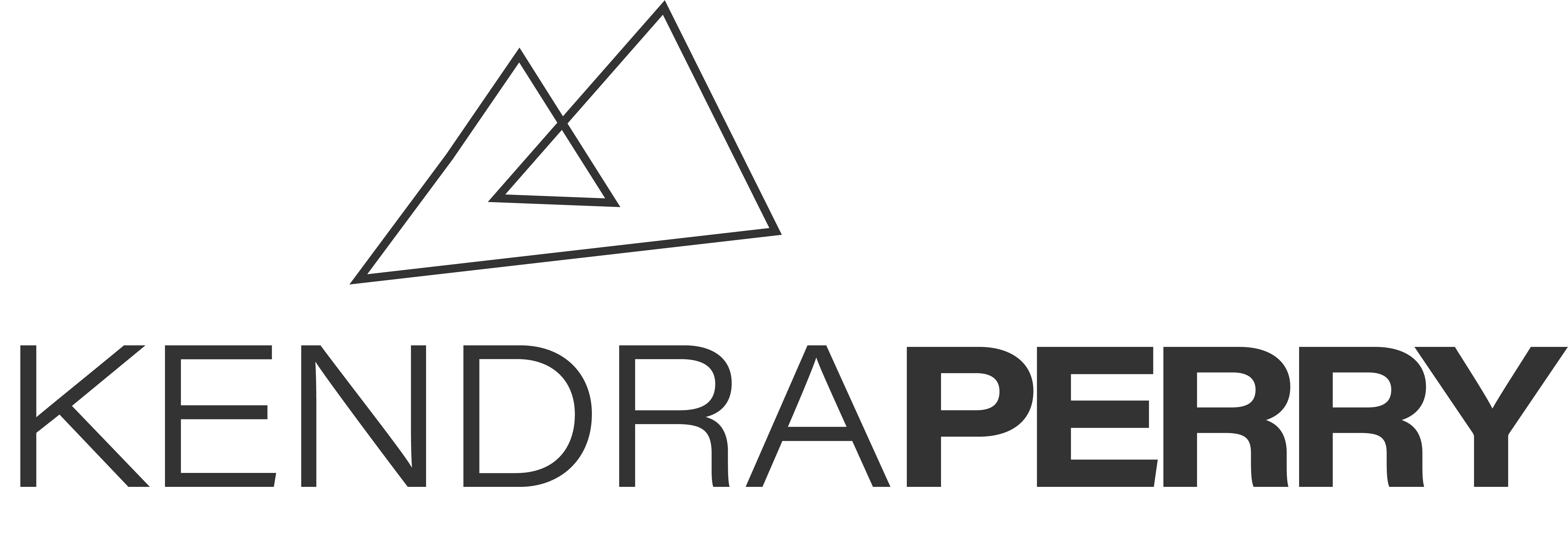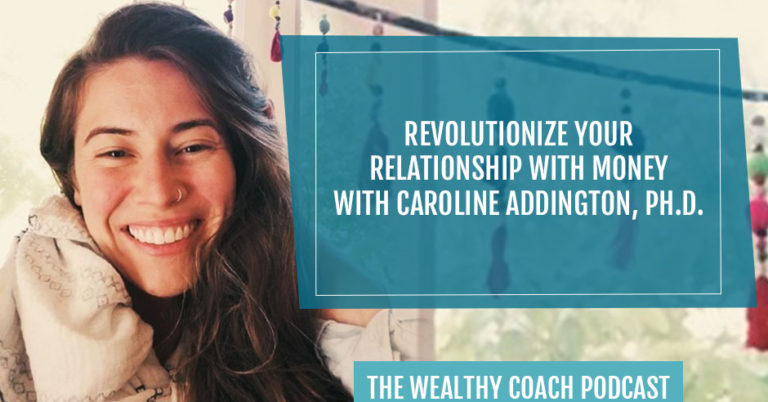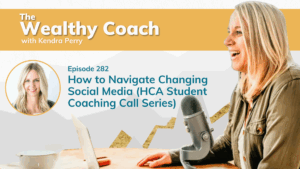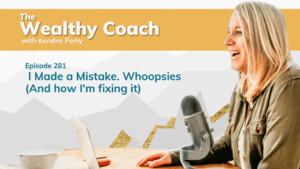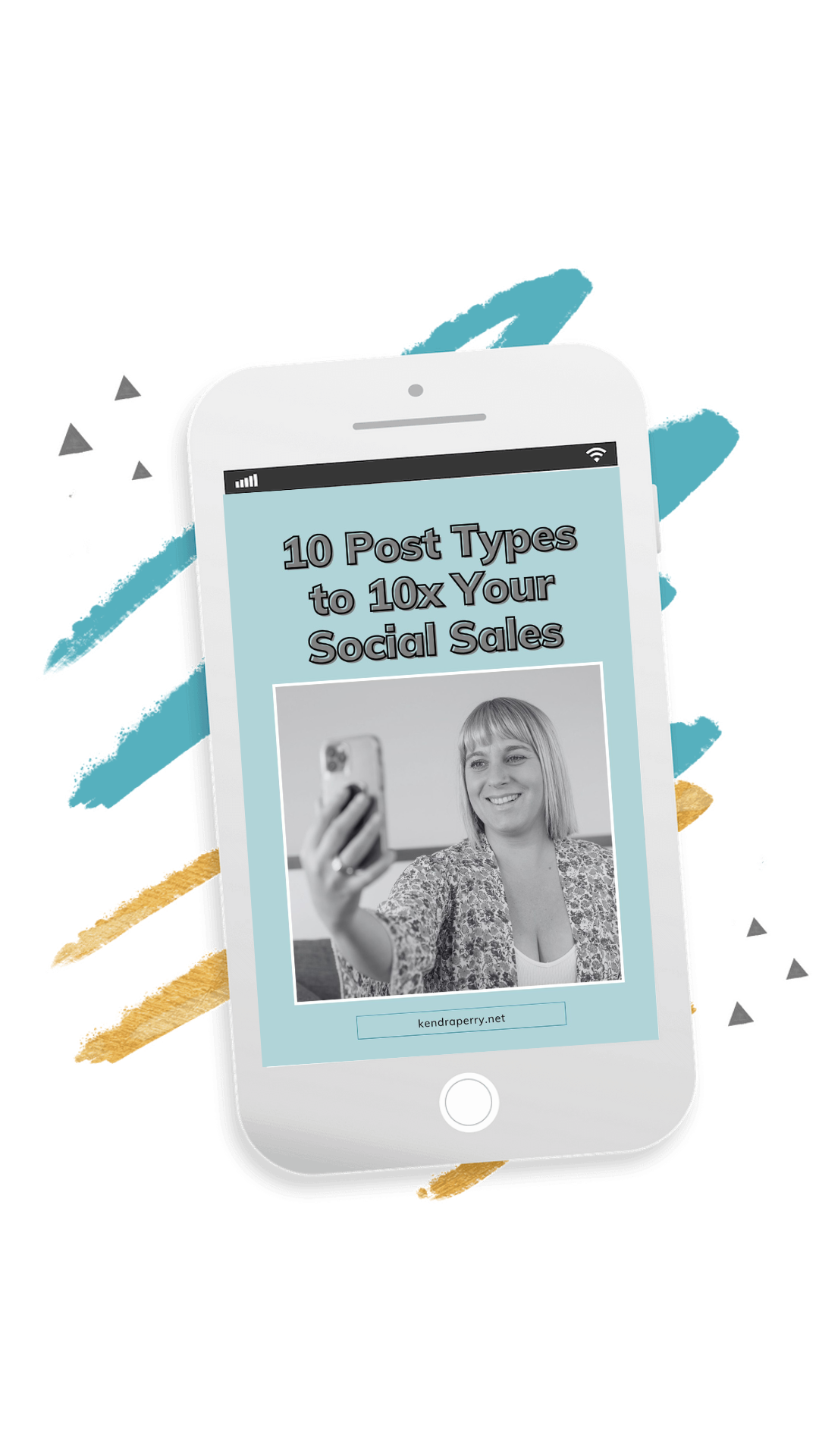Have you taken the time to look at your finances recently? Have you thought about what your relationship with money is? If you haven’t, this episode is the guide you need to start opening your eyes to a new perspective on handling your finances. Caroline Addington, Ph.D. is a former engineer + neuroscientist turned business mystic. She joins Kendra Perry to talk about her perspective on money and what our relationship with it should look like. Caroline explains the meaning behind money blocks and shadows and offers the concept of conscious circulation structure. Listen in to transform and revolutionize how you behave and deal with your earnings for the better.
—
Listen to the podcast here
Revolutionize Your Relationship With Money With Caroline Addington, Ph.D.
I had one of the most enlightening conversations about money that I’ve ever had before. I am not lying and making this up when the way in which I view money is forever changed. I’ve always considered money to be trust because people give you money because they trust you when it comes to being an entrepreneur. Making that simple reframe about money has helped me create a healthier relationship with receiving money because who doesn’t want more trust? I am always open to receiving more trust from those who follow me.
Therefore, it has helped me be open to receiving more money, but it goes so much deeper than this. I’m sitting down with an incredibly badass and interesting woman, Caroline Addington. We dive into the beauty that money is in being a teacher and how we can leverage our relationship with money to achieve a deeper state of consciousness, flow, ease and abundance. I am not lying. I think this is one of the best interviews I’ve ever recorded and the truth is money is a triggering topic.
Anytime I post about money on social media, I tend to get sometimes some eager responses and I get it because I also used to have an unhealthy relationship with money. I felt so much shame around money that I would shy away from even looking at it. I wouldn’t even want to look at my bank account and then I would overdraw my account. We pick up a lot of beliefs around money from our childhood. Also, as Caroline says, “Capitalism, while beautiful in theory, has truly led to the objectification of money.” It’s very similar to how the female body has been objectified.
The way we feel around money is it feels like this toxic relationship. It’s like, “When you’re not around, I’m stressed out. I’m freaking out. I’m super anxious and needy. I need more of you. When you’re around, I feel good and then I push you away.” I’m preaching to the choir here because a lot of us don’t have good relationships with money. The beautiful thing about entrepreneurship is it forces you to face money because you truly can’t be a wealthy entrepreneur without addressing this relationship with money.
Here’s a little bit more about Caroline. I love this woman. She is a former Engineer and Neuroscientist turned business mystic. She’s obsessed with thinking differently about money, consumerism, community and creativity in the modern age. She specializes in helping entrepreneurs reimagine their relationship with money and step into their sacred money work. This is a power-packed interview, an amazing and beautiful conversation. Let’s not waste any more time and jump into it.
—
Caroline, welcome to the show.
Thank you so much for having me. It’s good to be here.
I am super pumped up about our conversation because we’re going to be talking about money in a different way than I’ve ever spoken about it on the show, but so the readers know a little bit more about you, can you tell us your story and this progression of entrepreneurship? I know you have a very interesting story.
For anyone who’s into Human Design, I’m a Manifesting Generator. I have fully embraced the art of the pivot, which took time, but now I’m like, “I’m into experiencing all the things.” In my former career, I was a scientist. I have my PhD in Biomedical Engineering. I moved to Virginia, which is where I am now, to work in the neuroscience space. My body was getting super burnt out. I left that space in 2018 to start building businesses.
Through a series of crashing, burning and learning like everyone else, I eventually figured out I’m good at marketing and communicating my message. People started asking me for help with that. I blended that innate communication skill with everything I knew about neuroscience. I got curious about the neuroscience of marketing and how interacting with brands and messaging influences the decision-making process in our brains and all of this stuff.
I built up this successful personal branding and social media marketing company. I was surrounded by a life that would look like an abundance from the outside, but I wasn’t feeling abundant. I was like, “What the heck is going on here? I fulfilled all my desires. Why don’t I feel awesome?” In retrospect, the puzzle pieces fit together super well because I’m able to see. The way that our brains are affected by marketing influences our ability to be in a harmonious relationship with money, the things that we consume more broadly and consumerism as a concept.
The Manifesting Generator in me, I got super excited about exploring this concept and went down the rabbit hole. That has led me to where I am. It’s this beautiful progression of these different chapters. How our lived experience in human society interacts with brands, messaging, marketing and money stories, how that affects our brain, our decision-making and how that changes the way that we see money, maybe not necessarily for the better. We have a lot of agency and sovereignty in how we decide to relate to money as a true relationship. That’s the high-level story of the years of my life.
You said so many good things there and that’s so interesting. I would love to dive into this relationship with money a little bit more because it’s a triggering topic. Anytime I post about money, I always get a lot of engagement but sometimes, when I post to my personal Facebook account, which is more than just people who follow me for business stuff, I get some aggressive responses. I would love to dive into this relationship with money and these money stories because it clearly is a polarizing topic.
I so resonate with talking about it on the internet. I never planned to talk about money on the internet. I was doing market research with my community. I was like, “What do you need help with?” They were like, “Money.” I was like, “We’re talking about money on the internet.” There’s so much shadow in our collective around money. It is such a spicy topic for people. When you put yourself out there and start to talk about it, people will project all that shadow onto you.
Can you clarify what you mean by shadow for people who may not know what that means?
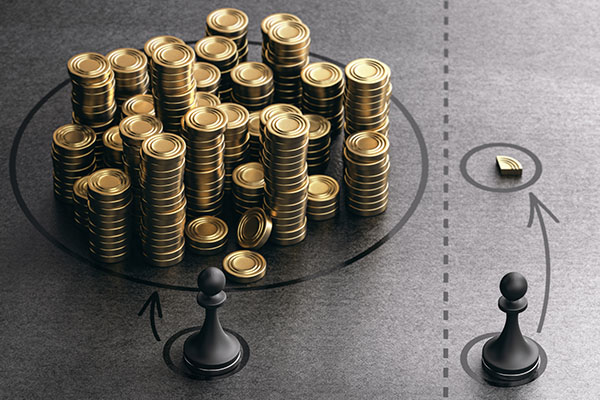
It’s the things that are hidden from our conscious awareness. For example, you have this road rage. Let’s say someone has road rage and they’re a super happy person otherwise. They’re like, “I don’t understand why I have road rage.” Maybe when they were a little kid, their dad would get crazy upset and have road rage. That is lying latent within their psyche and they’re not aware of it. That would be the shadow. They don’t know what they don’t know. They’re going and looking at that and saying, “This reaction makes sense. I watched my dad call everyone a jackass on the road. I picked that up and now I do it too.”
That’s a big part of our relationship with money. Many of the things that feel sticky about money are hiding. It’s stuff that we’re not aware of that’s hiding out in the shadows of our psyche. The first piece of changing and entering into a very intentional and deliberate relationship with money would be opening up to that shadow and not being afraid of what you might find because there’s always gold in the shadow. There’s always magic in there. There’s always deep truth and beauty in those spaces where we maybe haven’t looked before in our psyche.
Let’s dive into this money relationship or money shadow. I want to hear all the dirty details.
Society’s narrative about money and how we should be in a relationship with money is very objectifying in the same way that society objectifies women’s bodies. It’s the idea that money is a thing that we get and spend. It’s a thing. We use it to meet our needs and serve us exclusively. It’s this almost manipulative relationship. If you think about money as a person, if someone treated me the way that I used to treat money, I would be like, “Screw you. You’re stressed out when I come around. You’re always mad at me when I’m not there. What do you want for me? Make up your mind.”
That’s a helpful frame to think about. Depending on how you view the world, I have a lens of the world where there’s a possibility for everything to be sentient and conscious. The plants in my house have a consciousness. The computer I’m working with has consciousness. Money is the same way. It’s a being for anyone who has ever experienced plant medicine because those plants have a consciousness and a message. They’re here to teach us something. There are no bones about it. Money is exactly the same. It is a master teacher because it touches every part of our lives.
It can teach us about everything human. It’s in our relationships. It’s in how we think about relaxation and luxury. It’s in our sense of freedom and agency. It’s woven into every aspect of our human experience. It has the potential to touch the money in some way. When we start to open that lens to be like, “If I’m having trouble with money as it relates to my relationships, for example, then the money is here as a teacher for me in relationships. Can I go ahead and learn what money is trying to teach me in that context so that I can be in the right relation with money?”
Can I interject my relationship with money? I’m curious because it’s something I’ve been thinking a lot about a lot. I’m glad we’re having this conversation. I make good money, but I haven’t always. My parents were wealthy. My dad grew up in extreme poverty and is a self-made man. He’s very smart with his money. He’s incredibly calculated and frugal. He will do that if he can get a better deal on something by driving somewhere or ordering it in from somewhere different.
I was not great with money in my twenties. I never related to corporate 9:00 to 5:00 jobs. I always didn’t want that for myself. I ended up in forestry, which is a seasonal job. You make a lot of money when you’re working in the summer. You are off work for sometimes up to six months a year. I always had this perception that money comes and money goes and I would have a lot of it. It was this feast and famine. Now I run a successful company and I make more money than most people I know. I do well, but I’m always terrified of losing it. I feel like I live in this fear of losing it all the time.
That’s gorgeous. You might be like, “That doesn’t feel gorgeous.”
I know what you’re saying because there’s a lot to learn from that.
You think, “Money is here teaching me about true security, stability and abundance, which is something separate from money.” It’s like an internal game, but if you can play with this idea that there’s nothing necessarily in the 3D world that you need to do to set yourself up to be more stable. You can do that. It’s like, “I’m going to invest so that no matter what.” You can do those things, but when you start to play with, “Money is clearly here teaching me about stability, security, abundance and maybe whatever else I feel like is at the root of that. What is money teaching me about that?”
It’s a conversation with money. It’s entering into this conversation and dialogue where maybe you’re in this conversation with money. You’re like, “I’m going to look for security and abundance outside of money and see what I see because money is a gateway drug into whatever is underneath it.” It’s the thing that shines the light on the lesson, but the lesson always comes outside of money.
It’s interesting to look at my relationship with money throughout my life. I did lose it all the time because I wasn’t working for half the year. I was rich. I got a nice hotel, went shopping, and bought everyone shots at the bar. I was like, “I’m on government unemployment after I had been laid off and now I’m making $1,600 a month. It’s frugal.”
I’m so glad you gave the context of your dad because this happens all the time with people. I’m going to illustrate a thing. Visualize this with me. It’s this circle like a clock, maybe. From 12:00 down to 6:00, you’re learning imprints from the world around. In this case, you’re learning imprints from dad around the importance of being frugal. He was running some pattern where money is not always going to be here because there was a time in life when it wasn’t. We have to control the situation. We have to be super frugal, calculated and controlled.
From 12:00 to 6:00 on this wheel is that time of imprinting, learning it and absorbing it. From 6:00 up to 12:00 is closing that karmic loop. What can oftentimes happen is in the first part of the wheel, we’re receiving that imprint from our primary caretakers like your dad. The second half of that loop is money is almost coming in as a substitute and replicating that circumstance so that we have an opportunity to learn the deeper lesson and transcend that karmic loop.

If you look at your relationship with money now and maybe even the times where there was a lot and then there wasn’t a lot, the money was like, “Here’s this circumstance that you’ve been in printed with. You can continue replay this if you would like or learn from it, go deeper, transcend the whole thing, and maybe understand the lesson underneath about true security and stability, trusting the universe and true abundance.” In this second half of the karmic wheel, that’s when money steps in as a teacher or almost as a parent figure. It’s replicating what you were learning from dad for you to be able to go deep and learn the lesson.
There are so many good things there. Can we talk about how people block money? I see this all the time in my audience in my students. People are not only undercharging and undervaluing themselves, but there seems to be almost a wall up. They’re afraid to receive the money.
To be honest, I have such a love-hate relationship with the idea of money blocks. We do that to ourselves. We will turn away from opportunities, certain price points or something like that. The idea of it being a block has never sat right with my soul. For example, I have a friendship with this remarkable woman. I would consider her an elder in my life. She’s in her 80s. She’s amazing. She’s a total badass. When we first met, I wasn’t ready to be her friend because I still had a lot of hang-ups in myself about being who I was. She doesn’t care at all.
If I had hung around her, it would have been triggering and we might not have had the friendship that we have versus now when I’m like, “I love this woman. She’s amazing.” We’re kindred spirits because I can meet her there with my full self-expression. That’s the same thing that we do with money. It wasn’t that I was necessarily blocking myself from a beautiful friendship at that point. It’s that I wasn’t able to cultivate that beautiful friendship at that time. I wouldn’t have met her where she was. It’s not to say that we’re not always capable of creating more money.
We are but sometimes, on our journey, the experiences of hitting resistance when it comes to money are so valuable because that’s what builds our awareness of this money relationship. It’s like going to the gym and lifting weights. You got to have the resistance for the muscles to grow. Those “money blocks” are weight training for money. That’s our money weight training that every new entrepreneur goes through because they’re like, “I need to cultivate this intentional relationship.” If you’re in that position where you’re feeling blocked around money, it’s super helpful to know that it’s a universal entrepreneurial experience. It’s a place we all pass through. You’re not alone. Life is the best teacher.
Noticing our money experiences is honestly the best teacher because we will walk through these organic rites of passage where maybe you have a month when all of a sudden, for the first time, you hit $10,000 and then you’re like, “How do I hold this?” Maybe you have an experience where you have $0 and you’re like, “How do I hold this?” You have $20,000, “How do I hold this?” It’s this natural rite of passage and initiation. That can be such a maddening answer because we always want a silver bullet. The honest answer is to continue to be present with money in your life and allow money to teach you whatever it’s here to teach you. That will resolve those “blocks” faster than anything else.
I always tell my people, too, “You have to face money in a way and look at it.” When I considered myself to be bad with money, I wouldn’t even look at my bank account. I would avoid it and overdraw my account all the time because I had no idea what was going on with that. We have this shameful relationship where we can’t even face it.
That’s the shadow. If someone is in that position, we can tend to be like, “I need to discipline myself into looking at it,” but you can back off the heat until the point where it feels genuinely good for you. If looking at it feels spicy, then maybe back up and be like, “Maybe I’ll journal about why I don’t want to look at it.” You don’t have to force yourself to be miserable.
You can back step until it feels like it’s stretching you, but it’s not frying your nervous system and freaking you out. You can be like, “I don’t want to look at my bank account. I’m feeling freaked out by that. I know I don’t want to look at it. I’m avoiding it. Maybe there’s some shadow stuff there that I don’t yet see and I need a journaling session to uncover why I don’t want to look at it. Maybe that is my next best step.”
From going over and creeping around your website, it sounds like it’s about more than money. You speak about resources. Can you speak a little to our audience about what you consider a resource to be? I love the word resource. I became aware of what I believed it to be. I’m interested to hear you talk about it.
One of my favorite money books is The Soul of Money by Lynne Twist. If anyone is interested, I would recommend that book. That book comes to mind because, in that book, she talks about sufficiency as opposed to this idea of the abundant resource being the awareness that we always have what we need. It’s this idea of the life that is right in front of us is always sufficient even when and especially when it feels incredibly insufficient. It’s like what we were talking about. It’s those moments where the bank account is overdrawn.
You’re at the gym. You’re building the money muscle when you’re engaging it with presence. When I think about a resource, it feels like the blinders are off and the tap and spidey senses are wide open with the acknowledgment that everything in your field of awareness is a resource for you. It’s something that you can work with to enjoy your life. This is such a simple example. I have these herbal prayer blends that I send out each morning as part of my spiritual practice. I had finished up a blend. I blend them myself. It was time for me to make a new one.
I thought I was out of certain herbs and I was like, “I’m going to have to go to the store. I’m going to hold off and see what the day presents to me.” Twenty minutes later, I had this random remembrance that I had stashed away some herbs in this random closet and cabinet in my house. I go and look and everything I need is right there. That’s such a simple example, but when I think of being well-resourced, it’s that trust that all the things we need are here in some capacity. I don’t want to call it work because it’s our play. Our joy is to open up and get curious about how our world is already resourcing us.
Here’s the concept of resources that I learned. I did a breathwork facilitator training in 2021. It was always about, “Are you resourced enough to hold space for the breather or the person whom you’re facilitating?” I love that word because it’s more than, “Am I in a good headspace?” It’s our energy, life force and creative power. Are we available to hold that space for the person who is going through their experience? I love how you talk about it. It can also apply to us as well in holding space for ourselves.
That feels super connected to the definition that I was sharing because if we’ve got the blinders off and we’re tapped into the world around us and the flow of life, we’re also tapped into infinite energy. It’s the idea of ourselves being well-resourced to hold space for others. When I know that I’m tapped into life and the flow of life, I don’t have to worry about that because life is flowing through me and I’m tapped into all of that it is. I’m well-resourced. Even if my human body is feeling a little bit tired, I can always tap in and be like, “Help me out. Life, what have you got for me?”
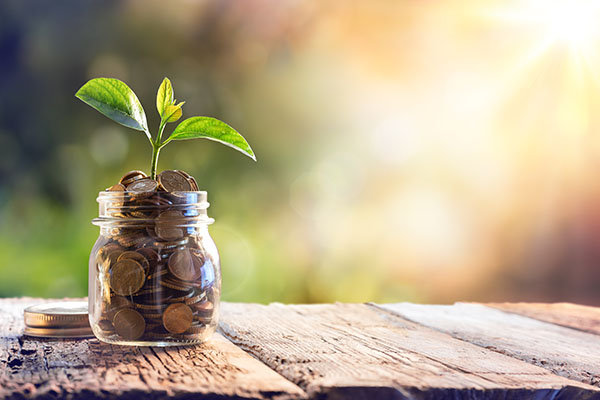
There’s another thing I want to ask you about, too, because you mentioned shedding this traditional capitalist structure and then something called Circulation Conscious Structure. Can we talk a little bit about that?
I’ll give a short context. Circulation Conscious is what I call my business model. It’s how we move money and resource more broadly through the business that I steward. This is my secret money work in the world. When we start to shift the way we relate to money and step into relating in this more mutually respectful relational way with money as a teacher, we can unplug from that objectifying relationship with money, which is society’s narrative about how we should be with money.
We can unplug from that and plug into something way deeper and way more fulfilling, which is our unique sacred work in the world with money. How are we meant to be in a relationship with money for us uniquely? For me and for the business that I steward, I’m meant to be in a relationship with money as a mover or a circulator. I personally don’t get off on designer bags or having my nails done all the time. I live on a farm. I’m in the dirt all the time. I’m happy as long as I have clean food in my body and a roof over my head and my dogs.
I find much more fulfillment with money by moving it towards the world I want to build, people, projects, and organizations doing work that brings me joy to watch. That is the primary financial goal of the business that I steward. It’s not to maximize profit at all costs, which is a whole other can of worms. When we think about capitalism and extractive capitalism, that’s a huge part of how we got to where we are with capitalism. It’s like, “Maximize shareholder wealth above all else.”
It’s at the expense of people, nature and all of that.
It’s super problematic.
There can be a middle ground with it too. Capitalism can work if it’s conscious and ethical. Some people are doing it that way but the powers that be are not.
I consider this business capitalism divergent because it’s not anti-capitalism. It’s not like, “That’s bad. We don’t want to do that.” Capitalism, at its core, is about a free market.
It’s about freedom of choice and the ability to do the job that you want to do and not be told by the government what to do.
It’s a gorgeous thing. It’s in the revolutionary spirit of America, which is where I’m based. This very revolutionary freedom-type spirit is the undercurrent of this country. Capitalism is beautiful at its essence, but when it’s that, “Maximize profit at all costs,” that’s taking it off its course. The Circulation Conscious business approach is honoring and acknowledging that our primary financial goal is not to maximize profit and shareholder wealth.
It’s to maximize circulation towards the people, projects, and organizations that build the world we want to live in. That’s our primary financial goal. Everything else supports that, including the profit margin. There is a healthy profit margin, but it’s so that we can be well-resourced and have the ability to extend into new projects and fun things, all in the name of being able to then move more money towards the world we want to build.
I would love it if you could quickly discuss some of these organizations that you stand behind. You mentioned Decriminalize Nature and Polyface Farms.
We can start there. I live in Virginia, right outside of the Shenandoah Valley or Shenandoah National Park, which is a gorgeous place to be. I’m super blessed to be here and deeply grateful for the nature here. Polyface Farms is about an hour away from where I live. It is this radically different approach to farming and agriculture that is not just renewable agriculture. When I think about Polyface, I think about the menstrual cycle.
They’re very cyclical in how they approach raising animals. Everything that they do is cyclical and in tune with the natural cycles of the Earth. As a woman, I also think of the menstrual cycle. There was a time in my life where I was vegan for a hot second for economic reasons and because I didn’t agree with the way the animals were being raised and treated. My body doesn’t thrive as a vegan.
We’re similar because I did the vegetarian thing for a while. As soon as I started eating meat, all my mental health issues disappeared in two weeks. I was like, “Crap.”

My energy came back. My partner hunts on the farm. A lot of our red meat comes from the farm where we live. It’s beautiful. He says a prayer and helps the animals’ souls transition, which is gorgeous, but that’s not necessarily accessible to everybody. Polyface Farms is leading the way in how we can be in a relationship with the animals that we consume honorably and with mutual respect and leave a small footprint on the Earth. It’s not even just leaving a small footprint but contributing to the thriving of the Earth. I deeply believe in what they’re doing. Veganism is great for the people whose bodies thrive that way, but it’s not going to be a sustainable solution for everybody, whereas this presents another path forward.
I was a health coach. I dealt with a lot of people who had been vegan for years and it was a bit of a mess to clean up. There are some people that do fine on it for a time, but I’ve seen it to be pretty disruptive to the human body.
I won’t go all the way down the rabbit hole because I’ll also speak on Decriminalize Nature. For me, I was like, “Plants are super alive too. There’s no way to get around eating alive things.” Decriminalize Nature is another organization that I love. We were talking about plant medicine. Its mission is to decriminalize entheogenic plants and natural aspects of nature that are transformative for our normal waking states of consciousness and grow right out of the ground.
There are several organizations doing research into plant medicine, psychedelic therapy and all this stuff. What I love about Decriminalize Nature is that they are boots on the ground, but it’s not this combative energy. They’re hands in the clay. They do a great job when they decide to focus their sites on a state in the US or a region and help move an entheogenic plant from being in an unfortunate legal position like psilocybin, for example, into being decriminalized. They have a beautiful path set out for that through experience.
When they set their sights on a thing, project or state, it’s only a matter of time. They know what they’re doing and doing it in a way that deeply honors the history of these plants and plant medicines. As White women living in colonialized land, we have not been the historical stewards of this. Decriminalize Nature does a good job of bringing all of this to the forefront without trampling the humans who have been stewarding and holding this sacred medicine for centuries. Those are the two organizations that we get behind.
We could have a whole other conversation about plant medicine.
It has been a huge ally in my life for sure.
I’ve started dabbling into it with some plant spiritual. I did Kambo frog medicine, which was pretty transformational, and even a little bit of work with psilocybin. It’s interesting to have a different relationship with these drugs, plants or medicines because, in the past, my relationship with drugs was very abusive.
When I was in grad school, it was like, “We’re going ham.”
It’s like, “Take all the drugs. Do all the things. Party all night.”
I don’t know if this is the type of thing that you would want to have on your show, but The Mushroom Mamasita is a wealth of knowledge on mindfully approaching psilocybin. She was on my podcast. She’s a beautiful human being and doing good work in the world.
Is there anything that you want to leave our audience with before we tune out?
This is always my favorite piece of wisdom to give. When it comes to money, it’s noticing the areas where you feel discomfort about it, being with it and not needing to fix the discomfort. That’s a whole other conversation that we didn’t get into. To go back to the money blocks, it’s that willingness to be like, “I feel spicy about this. I feel some way about this.” Letting that be okay is so simple but also the most transformational approach that I have ever found. If someone has been resonating with everything that we have been talking about when it comes to money and everything like that, notice the discomfort and relax around it. Relax your body and being and let it be okay that it’s there. Change is inevitable when that’s the case.
There’s so much to be learned in those moments of discomfort if we’re willing to sit with them. We’re often trying to avoid, ignore or numb out when we’re feeling things that don’t feel comfortable. What I’ve learned from doing my breathwork facilitator training is that if you can sit in an uncomfortable emotion and let it move through you, you will deal with it much faster than if you try to ignore it or push it down.
That is the only way.
Thank you so much. This has been a very enlightening conversation. I’m going to stalk you more on social media and read more of your stuff because I love this. This is great. You’ve talked about money in a way that I haven’t heard anyone talk about it before. That has been super valuable. Thank you so much. To everyone who’s reading, as always, I am so grateful for you. Thank you for taking the time out of your day to read. I will see you again at the same time and same place where I help you become wealthy AF.
Important Links
- Caroline Addington
- The Soul of Money
- Decriminalize Nature
- Polyface Farms
- The Mushroom Mamasita
- https://www.Instagram.com/MushroomMamasita/
- @Caroline.Addington_ – Instagram
- https://www.CarolineAddington.com/freecourse
About Caroline Addington
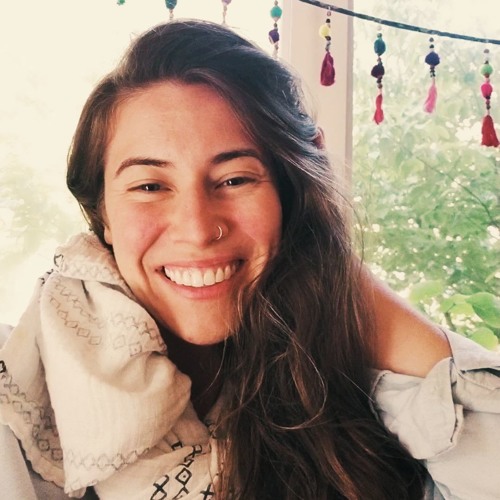 Caroline is a former engineer + neuroscientist turned business mystic. She’s obsessed with thinking differently about money, consumerism, community + creativity in the modern age. She specializes in helping entrepreneurs reimagine their relationship with money and step into their sacred money work.
Caroline is a former engineer + neuroscientist turned business mystic. She’s obsessed with thinking differently about money, consumerism, community + creativity in the modern age. She specializes in helping entrepreneurs reimagine their relationship with money and step into their sacred money work.
